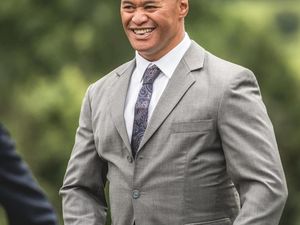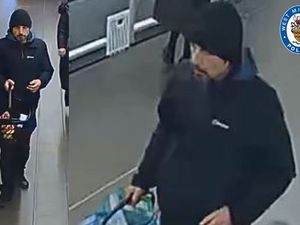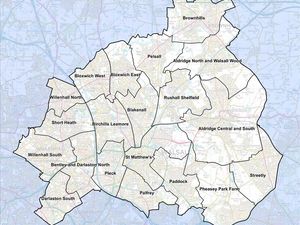The even thinner blue line: How we’ve lost 25 per cent of police officers since 2010
Police officer numbers in the West Midlands and Staffordshire have plummeted by more than 2,500 in a decade – the Express & Star can reveal.
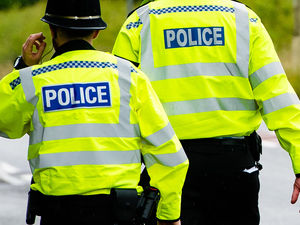
Staffordshire Police has seen a 26 per cent drop in officer numbers over the past seven years, more than any other force in England and Wales.
It leaves the county with 142 officers per 100,000 population. Only Wiltshire Police has fewer.
West Midlands Police has lost 24 per cent in officer numbers over the period from 2010 to September last year – and has 228 officers per 100,000 population.
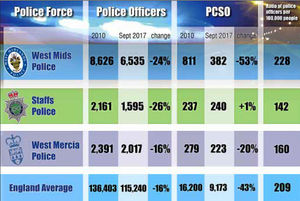
This dramatic drop is the fourth biggest of any force across England and Wales.
It comes at a time of rising levels of crime in both force areas – rising in the West Midlands by 14 per cent last year and in Staffordshire by 11 per cent.
What effect is the drop in numbers having?
West Midlands Police Crime Commissioner David Jamieson said the cuts ‘have clearly had an impact on the preventative abilities of the force.’
The number of officers in the force fell from 8,626 in 2010 to 6,535 last September.
A spokesman for the force said it was moving through a ‘significant programme of change and modernisation’.
COMMENT: Modern policing needs more manpower
He said: “[The programme] is examining all functions across the organisation, looking at how we operate, whether there are ways to be more effective and more efficient.”
Staffordshire has seen the biggest drop proportionally in officer numbers since 2010 compared to any other force in England and Wales – falling from 2,161 to 1,595 last September.
Changes underway in Staffordshire
The force is currently undergoing a change to its police model, reassigning many officers to serve in neighbourhood policing.
Chief Constable Gareth Morgan accepted fewer police officers could be one of a ‘number of reasons’ behind the rise in crime.
He added: “However, it is too simplistic to draw a straight correlation between crime increasing and having less officers, as this doesn’t take into account the changing complexity and shape of crime that is now being reported to us to investigate.
“Crime has risen in Staffordshire, but this is due to a number of reasons, one of which may include the fact there are now fewer police officers than there were 10 years ago.
“The use of social media and the internet by criminals to threaten, harass and intimidate victims is now classed as violent crime – even though it doesn’t cause physical harm, offenders are using social channels to send messages to cause the victim distress or anxiety.
"Also, more confidence in reporting non-recent and sexual crimes has meant an increase in these often long-term, complex investigations.”
Mr Morgan is making changes to the policing model, moving 144 officers into neighbourhood roles over the next two years. A review of the police estate is also being carried out.
He said: “It is the consequence of having to investigate these complex crimes that concerns me about having less officers rather than an increase in crime, which is why as a force we are having to make significant changes to the way we police the county.
“We need to be visible in neighbourhoods but we also need officers who can investigate online and more serious, complex crimes.
"As part of our changes we are investing more resources in preventing crime in the first place and in more technology and officers who can deal with more complex issues.”
Eddie Hughes, Conservative MP for Walsall North, said: “These figures are deeply concerning. As I have argued again and again since joining Parliament a year ago, people want more police on the streets.
"The West Midlands Police and Crime Commissioner received more cash from taxpayers last year, has multi-millions of cash reserves, and should be using these to increase the number of officers we have in Walsall and the Black Country.”
West Midlands 'modernisation'
While Staffordshire came top for the proportional drop in police officer numbers, West Midlands came fourth, also coming behind Cleveland and Durham.
Spokesman Deb Edmonds said: “We are moving through a significant programme of change and modernisation as a force, which is examining all functions across the organisation, looking at how we operate, whether there are ways to be more effective and more efficient.”
She said the changes included launching new support teams dealing with the public, enabling officers more time in their roles.
The number of neighbourhood policing units has reduced to eight, but Ms Edmonds said: “We have invested in neighbourhood policing and now have more dedicated neighbourhood officers and PCSOs.”
This is despite the number of PCSOs dropping by more than 50 per cent since 10 years ago, from 811 to 382.
She added: “The role of a police officer is unique but we should also recognise the vital role our police staff, including PCSOs, provide. They also play a hugely important role keeping the region safe.”
Twenty four police stations across West Midlands are also to close.
Conservative MP Mike Wood, whose ward is Dudley South, said: “Police budgets are controlled by the Police and Crime Commissioner, I would like to see decisions taken which would result in more front line officers and fewer backroom staff.
“The more of the police budget is spent on frontline services the better for us all.”
A Home Office spokesman said this year’s police funding settlement gave Police and Crime Commissioners flexibility to increase budgets through precepts.
He said: “Police funding is increasing by £460 million this year, with around £280m from precept going directly to forces to spend on local priorities.”


